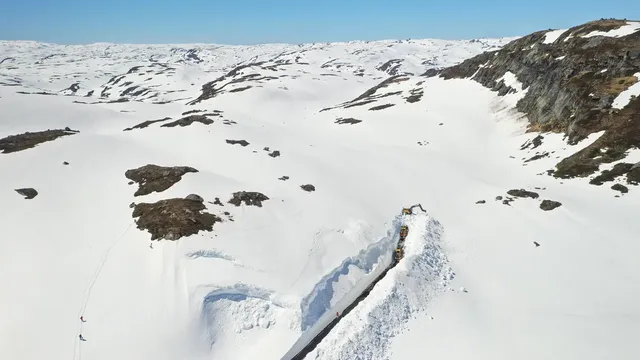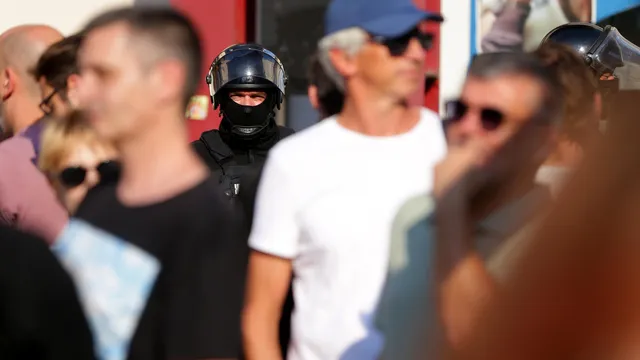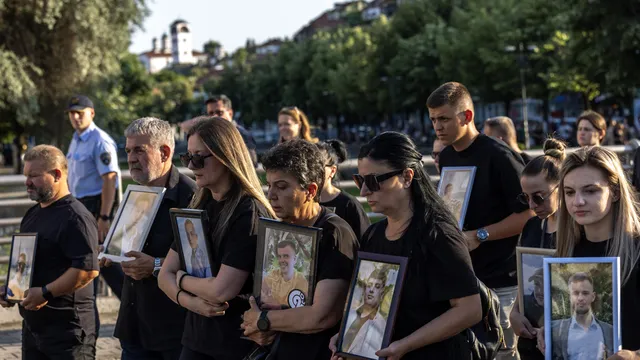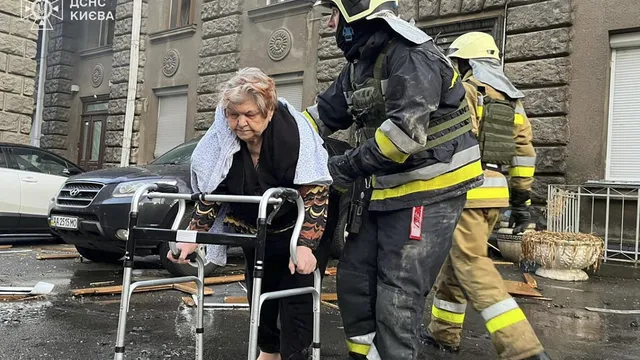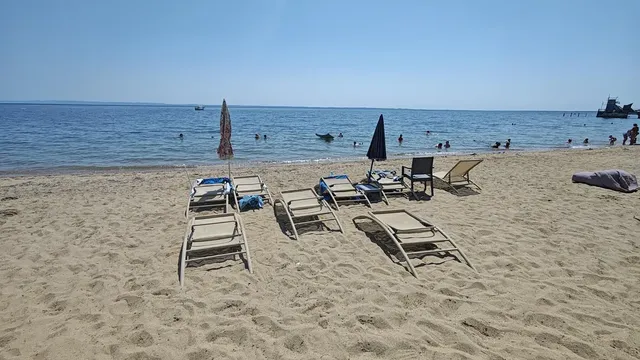During his vacation in Norway, American journalist Alec Lunn decided at the end of July to extend his stay to explore Folgefonna National Park in the southwestern part of the country and get closer to an impressive glacier.
A veteran mountaineer, he set off on his own, reassuring his wife in England by showing her his detailed route. However, problems quickly arose. The sole of his shoe came loose, causing Lun to lose his balance. Instead of turning back, he continued. After several hours of walking, despite the steep slope, the hiker continued his climb until late in the evening. Then he slips and falls.
He doesn't know it yet, but the verdict is severe: a broken femur, a fractured pelvis, damaged vertebrae, torn arms, a bruised head, Alec Lun is in bad shape. His bag burst open during the fall and his phone, water, and part of his equipment were gone. When he woke up, the 38-year-old man realized he was seriously injured.
Unable to move, with no means of communication and no water, he knew that his only chance was to wait for his absence to be noticed so that his wife could be alerted after he missed his return flight. Alec Lun tried to survive despite his terrible thirst. His food rations were useless, his mouth was so dry. In a desperate attempt, he drank his own urine and blood to avoid becoming too dehydrated, before collecting rainwater with his soaked bandana a few days later.
An extraordinary rescue mission
On August 4, noticing that her husband had not boarded the plane, Veronica Silchenko alerted the authorities. A large-scale rescue operation was quickly launched. About fifty rescuers, equipped with dogs, drones, and climbers, searched the mountains in terrible weather. The efforts continued for two full days, a rare period of time according to Norwegian rescue teams. Meanwhile, in the mountains, Alec Lunn, frozen and suffering from frostbite on his feet, tried to stay conscious, thinking of his loved ones and clinging to the hope of a quick rescue.
On August 6, after a freezing night, a search helicopter flew past him. Alec Lunn waved weakly, but the helicopter flew on without noticing him. Fearing he had missed his only chance, he improvised a signal with his red bandana tied to a tent peg. Forty-five minutes later, the sound of the blades returned. This time, the rescue team noticed him. "Finally, the side door of the helicopter opened and a man waved at me, and then I knew I would survive," he told The New York Times.
In Bergen, the journalist underwent several operations. Two weeks after his nightmare, he is still in the hospital, unable to walk due to frostbite. Despite what he had been through, he hoped to walk again and return to the hiking trails one day. But this incident taught him that when the sole of his shoe came off... it's best to turn back. I BGNES

 Breaking news
Breaking news
 Europe
Europe
 Bulgaria
Bulgaria
